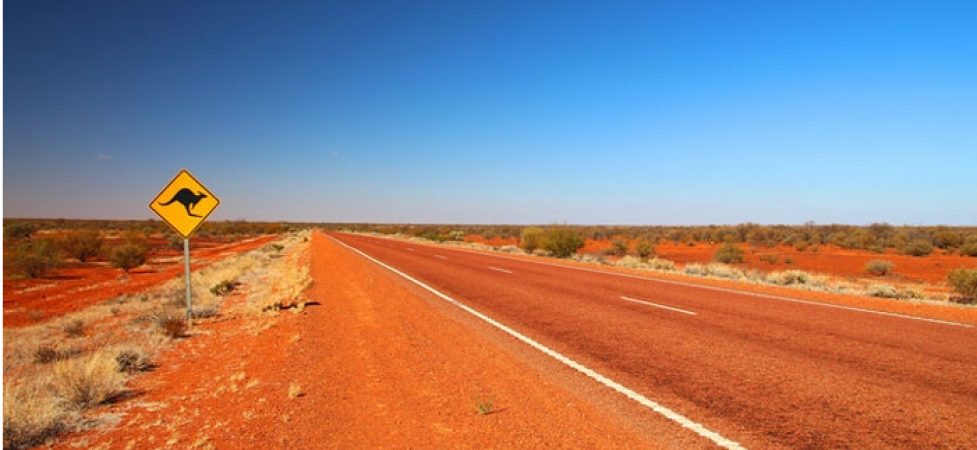
Canberra: New Zealand's proposal to resettle refugees held in Australian detention camps such as Nauru in nearly six months has been accepted by only 36 people, with the UN refugee agency blaming the brutality of Australia's immigration regime.
In March 2022, the Australian government accepted New Zealand's long-standing offer to resettle 450 refugees from regional processing centers in Australia at a rate of 150 per year over the next three years. However, after about six months, adoption has been slow, hindered by the poor mental health of potential applicants.
According to the United Nations and the New Zealand Greens, many refugees have been traumatized by their years in prison camps and have lost faith in the asylum process.
Also Read: After a mass stranding in Australia, 200 whales died and 35 were still alive
In theory, more than 1,200 people, including about 110 refugees and asylum seekers, could apply in Nauru and about 1,100 were temporarily relocated to Australia. So far, the United Nations High Commissioner for Refugees (UNHCR) has submitted 36 people for resettlement in New Zealand under this arrangement, but according to the New Zealand government, only 14 have been interviewed.
UNHCR's Australia, New Zealand Emily Chipman said: "The mental health impact of what these individuals have experienced over the past nine years has significantly affected their ability to engage in the rehabilitation process and a general lack of confidence in the procedures." gave birth to." , and Pacific Regional Representative.
"Refugees have expressed concern about leaving family members behind in Australia, as well as not being psychologically strong enough to rebuild their lives in a new country over the past nine years."
Chipman said less than 14% of the more than 1,100 refugees detained in Australia have expressed interest in relocating to New Zealand. People who are still awaiting a decision on their applications in other countries, such as the United States and Canada, cannot be deported to New Zealand. As a result, less than 9% of Nauru's residents are currently eligible.
New Zealand Immigration Minister Michael Wood told reporters on Thursday that the lower number was due to fewer people self-enrolling in New Zealand than expected. "There is nothing we can do to force those involved to follow this path," he said.
Also Read: England coach Richard Dawson withdraws from Pak tour due to injury
People should positively identify themselves as willing to pursue the option of a settlement effort in New Zealand, where these numbers come from. So many people have identified that option."
Wood said he "had a number of fruitful discussions with Claire O'Neill, the Minister of Home Affairs in Australia, who oversaw the deal on behalf of the Australian Government, and I think they are very positively engaged in the process." "
New Zealand Greens refugee spokesman, MP Goliz Gahreman, said the delay was due to the fact that many of the refugees involved had been severely traumatized and had major mental health problems, with some suspecting that the proposal was genuine and would not. Has taken back.
"There are a lot of people who are really difficult to process because of very serious mental health impairments," Gharman said in a meeting with UNHCR officials. "They're having trouble getting information out of them, or even getting them to apply," she explained.
Home Minister Claire O'Neill has been contacted for comment on the reasons for the low take-up.
Gharman said many refugees had endured years of torture, citing the case of a 12-year-old boy who was eventually taken to Australia in critical condition after being denied all food and medical treatment for more than 20 years. went. Day.
Also Read: 'Humanitarian crime': battle trims out of insulin supply in Tigray
According to a 2018 report by Médecins Sans Frontières, nearly one-third of Nauru asylum seekers and refugee patients attempted suicide, 60% had suicidal thoughts, and 12 patients were diagnosed with the rare disorder resignation syndrome , in which they became nonverbal and catatonic.
“Before people can engage in the refugee determination process, they require a high level of mental health care and support, and this must be actively resuscitated – perhaps by Australia,” Gharman said. Because Australia is the one who did the damage."
Others had already applied for resettlement in Canada or the United States and were concerned about losing their place on those waitlists when they applied in New Zealand, she explained.
16 refugees are being processed on Nauru, of whom 14 are interviewed, to determine their eligibility for New Zealand's offer. New Zealand is making immigration decisions on their behalf. The other 16 are in Australia and have not yet been interviewed to determine their eligibility as the UNHCR recently included them in the process.
While Asia Pacific Refugee Rights Network (APRN) attorney Elizabeth Young expects the resettlement process to be lengthy, she considers it "remarkable" that such a small number have signed up to start the process.
"Why is this taking so long, and what is being done to promote it as a good option for people... are people properly supported to apply?"